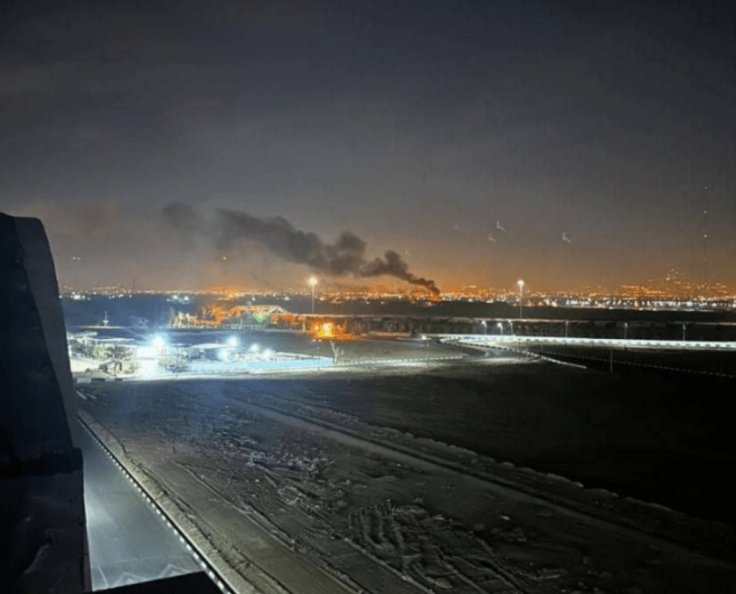Israel carried out airstrikes on military targets in Iran on Saturday in response to a recent launch of 200 ballistic missiles by Tehran targeting Israel, the Israeli military confirmed. Multiple blasts were reported near Iran's capital, Tehran, and the city of Karaj, as Israel's initial strikes may have targeted a weapons depot and a barracks or office, NBC News reported.
Israel also struck "surface-to-air missile arrays and additional Iranian aerial capabilities, that were intended to restrict Israel's aerial freedom of operation in Iran," the IDF announced. Rear Adm. Daniel Hagari warned in a video posted on X that if Iranian officials were to retaliate, Israel would be "obligated to respond."
Israel Strikes Back

"Our message is clear: All those who threaten the state of Israel and seek to drag the region into a wider escalation will pay a heavy price," he said. "We demonstrated today that we have both the capability and the resolve to act decisively, and we are prepared on offense and defense, to defend the state of Israel and the people of Israel."
"Like every other sovereign country in the world, the State of Israel has the right and the duty to respond. We will do whatever necessary to defend the State of Israel and the people of Israel," Hagari added.
Earlier, IDF forces said on social media that they were carrying out "targeted strikes" on military sites in Tehran as a response to what they described as "the continuous attacks from the regime in Iran against Israel."
Hours later, the Israeli military reported that it had completed its strikes on Iran's capital, stating, " Our planes have safely returned home. The retaliatory strike has been completed and the mission was fulfilled."
According to the New York Times, around 20 sites were targeted throughout the night. Iranian officials, however, downplayed the impact, saying the strikes caused only "minimal" damage and claimed that Iran's "integrated air defense system" had "successfully intercepted and countered" the attack, as reported by its state-run news agency, IRNA.
Fears of Full-Scale War

While missiles soared over Iran, Prime Minister Netanyahu was reportedly in a bunker at Tel Aviv's Kirya military base, according to his office.
Israeli authorities confirmed that their focus remains on targeting military sites exclusively, with no immediate plans to strike Iranian nuclear facilities or oil fields, NBC News reported.
"We're targeting things that might have threatened us in the past or could do in the future," the official said.
Meanwhile, around the same time Israel began its offensive against Iran, multiple military sites in southern and central Syria were also struck, with Syrian air defenses reportedly intercepting "hostile targets" near Damascus, as reported by local media.
According to the Times of Israel, Syrian state media blamed the attack to Israel, though as of early Saturday, Israel had not commented on any action in Syria.
Fox News reported that the White House was notified shortly before Israel launched its strikes on Iran, with President Biden and Vice President Kamala Harris also briefed on the situation.
"We understand that Israel is conducting targeted strikes against military targets in Iran as an exercise of self-defense to Iran's ballistic missile attack against Israel on October 1," said White House National Security Council spokesperson Sean Savett.
In the wake of Saturday's early morning airstrikes, Iran closed its airspace, and commercial flights were largely absent over Iran, Iraq, Syria, and Lebanon, the Associated Press reported. Around four hours after announcing the airstrikes, the Israeli military declared that the retaliatory operation had ended.








